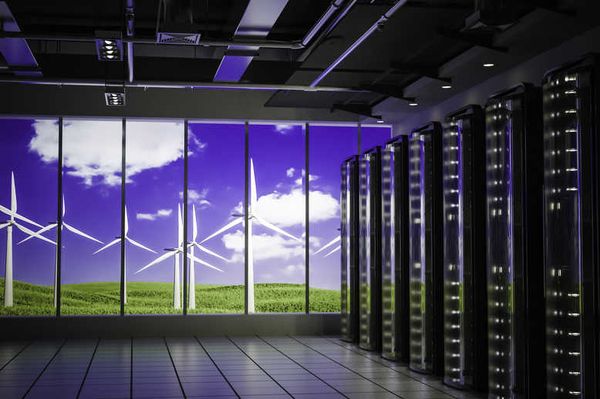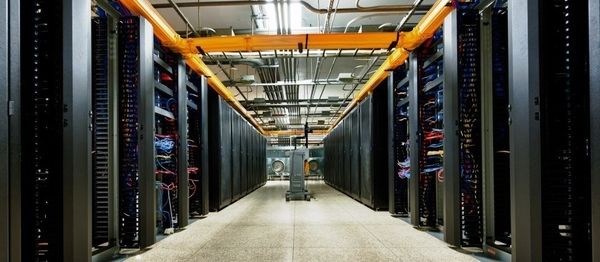
Why Data Centers Are More Efficient Than Most People Realize
March 19, 2020
Top Reasons Why Data Analysis Is Important for Every Successful Business
March 25, 2020The data we as a species produce every day is astounding. This year the estimate is that each person will generate 1.7MB of data each second. In fact, a recent academic paper found that, if the UK were to try and store all the data produced in 2018, it would cost the country’s GDP for the year to do so.
With the sheer amount of data being produced, its no wonder an entire sector of the economy is dedicated to data storage solutions. Data centers, dedicated to handling, storing and providing access to millions of terabytes of data around the world, are an essential partner to any business that deals with information. Whether that’s customer data, employee records or archival information, that’s every company.

Photo Credit: CloudOYE
However, with a market brimming with data center possibilities, how can you sort the wheat from the chaff and make sure your data is in good hands? What are the aspects that set apart a great data center from a pretender? Well, the list is endless, but here are 7 to focus on when selecting a data center for your company.
Your Goals
Data centers come in every shape and size you can think of, and each is suited to different sectors, businesses, and types of data. The perfect data center for you might look completely different from someone else’s, determined by your data storage goals.
Some companies prefer to have consistent and frequent access to their stored data, while others might need long-term secure storage and infrequent access. Determine what precisely you are looking for in data storage and handling before picking your center.
Location
No matter what size of the data center you’re looking for, where it’s based is obviously an important factor, just like where your company is based was a factor in your decision making. However, there are some specific aspects you should be looking for in a data center location.

Photo Credit: Joran Markx
Naturally, safety is paramount. Firstly, that means safety from climate and natural disasters; is the center resistant to tornadoes and earthquakes? Are data banks likely to be fried by intense heat, and if so has the company invested inadequate cooling solutions?
Security
This one’s a no brainer: you want your data center to be completely up to scratch on the latest methods of securing their data. Cybercrime is on the rise and data center companies need to rise to the challenge if they’re going to compete in the market. What is the center’s capacity for encrypting data?
What do they offer in the way of uplink security? Consider hardware security as well: how are the servers protected from physical theft and damage?
Infrastructure
A data center relies on its infrastructure to work, so you have to make sure it’s reliable. When it comes to choosing a data center, aspects like network speed and reliability will determine how you interact with then, so they are of paramount importance.
This is also somewhere where futureproofing is a consideration: as your company grows and the information you’re dealing with gets more complex and massive, you want to continue to deal with it reliably and quickly. Look for a company that has this future potential in their service offerings.
Price
Price is often the first thing companies look at in a data center, and it’s certainly an important factor to consider. More than just the original cost, this is another area in which future-proofing is important. If all goes well your company will grow, the data you manage will grow and you will need larger storage and a dedicated center to handle it.
If the cost of doing so is prohibitive, or the center can’t accommodate that much growth, they might not be your best choice.
Contingencies
Hand in hand with the security of the data collection is what contingency they have in case of an emergency. This might come in the form of a data breach, server damage or serious natural disaster — there is always the possibility of an unavoidable attack on a data center’s servers. In the aftermath of such a scenario, emergency provisions become the top priority for you and your business.
Any data center worth its salt will have back-ups prepared in case of attack or damage that are kept in a separate safe location than the original files, and are quick if not immediately accessible.
Reputation
There is a key difference between reputation and marketing: A brand image can be manufactured, but a company’s track record can’t. While you should pay attention to how a data center markets and presents themselves, you can only learn so much about how they do business and how they interact with their clients.

Photo Credit: Reform Interactive | Digital Marketing Agency San Diego
Take care to look behind this image: do your research on their current and previous clients, get in contact and ask about their experiences.
Certifications
Data centers are differentiated by various certifications the indicate the quality of their services, the sustainability of their business model and how they handle personal data. These certifications are important for you to know — so you can be sure the center aligns with your company values — and for your customers to know — so they know their personal information is safe and being used correctly.
It’s also important to note that these certifications are transferable, in a manner of speaking: for example, if the center that houses your information is compliant with a certain data protection legislation (like GDPR in the UK), then so is your company.
Takeaways
Picking a data center is a big consideration for any business. Who handles your data is a concern not just for your company but for your customers, and how it is handled is something that requires careful thought. Don’t rush into a relationship with anyone company, make sure to sit down with your team, particularly those responsible for cybersecurity and data management, and come to a consensus on the challenges you face and the solutions you’re looking for.
Main Photo Credit: Lifeline Data Centers
